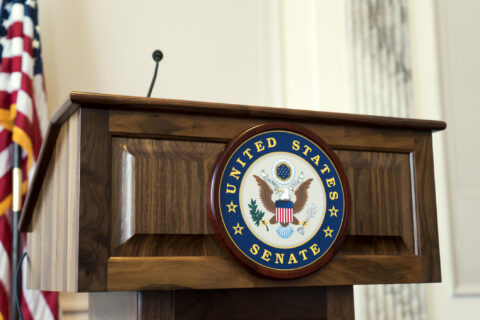In West Virginia v. EPA the U.S. Supreme Court will decide whether the U.S. Environmental Protection Agency (EPA) had the authority to issue the Clean Power Plan (CPP) Rule. While the Clean Power Plan hasn’t been on the books for a number of years, whatever the Court holds in this case will likely be relevant to other rules adopted under the Clean Air Act or other statutes.
The Clean Air Act directs EPA to regulate powerplants that cause or contribute significantly to air pollution. In 2015 EPA adopted the CPP which regulates greenhouse gas emissions from existing fossil-fuel-fired powerplants. A key “building block” of CPP was “generation shifting” where emissions reductions occur because “the source of power generation shifts from higher-emission power plants to less-polluting sources of energy.”
In 2019, EPA repealed the CPP and replaced it with the Affordable Clean Energy (ACE) Rule. EPA concluded it had to repeal the CPP because “generation shifting” operates off-site of power plants and “the plain meaning” of the Clean Air Act “unambiguously” limits emission reduction measures to only those “that can be put into operation at a building, structure, facility, or installation.”
A number of states, local governments, and others challenged the ACE Rule’s conclusion that emission reduction measures must be implemented at and applied to power plants. West Virginia and others challenged the ACE Rule on other grounds.
The D.C. Circuit held that the EPA didn’t act lawfully in adopting the ACE Rule because repealing the CPP “hinged on a fundamental misconstruction” of the Clean Air Act,” that generation shifting is not allowed.
According to West Virginia, among other problems, the D.C. Circuit “gave short shrift to the clear-statement canons.” West Virginia states:
“If an agency can ever wield economy-transforming power to decide major questions and significantly alter the balance of power between the States and federal government, Congress must delegate that authority with unmissable clarity. This is because two constitutional presumptions militate against implicit delegations of such weighty matters: First, courts presume that “Congress intends to make major policy decisions itself” and does not lightly assign “major lawmaking authority . . . to the Executive Branch.” And likewise, courts presume Congress does not intend to make “a dramatic departure” from the Constitution’s state-federal balance “[a]bsent a clear statement of that purpose.”
West Virginia also points to Judge Walker’s dissent in this case where he opined that the lack of a clear statement from Congress allowing generation-shifting is fatal to the CPP: “Hardly any party in this case makes a serious and sustained argument that [the Clean Air Act] includes a clear statement unambiguously authorizing the EPA to consider off-site solutions like generation shifting. And because the rule implicates ‘decisions of vast economic and political significance,’ Congress’s failure to clearly authorize the rule means the EPA lacked the authority to promulgate it.”
However, Judge Walker noted that the clear statement rule could be clearer: “I admit the Supreme Court has proceeded with baby steps toward a standard for its major-rules doctrine. But ‘big things have small beginnings.’ And even though its guidance has been neither sweeping nor precise, the Supreme Court has at least drawn this line in the sand: Either a statute clearly endorses a major rule, or there can be no major rule.”
Following its adoption, the CPP was directly challenged in the D.C. Circuit. The D.C. Circuit refused to prevent it from going in effect while the litigation took place. In what Judge Walker described as an “unprecedented intervention,” the Supreme Court in 2016 stayed implementation of the rule, implying it was skeptical of the CPP. The D.C. Circuit dismissed that case without resolving it as EPA replaced the CPP with the ACE Rule.
NLC and coalitions of cities, counties and mayors signed onto amicus briefs supporting the Clean Power Plan and opposing the Affordable Clean Energy Rule.
Become a NLC Member
NLC is a strategic partner for local leaders and municipal staff, serving as a resource and advocate for communities large and small. Join our network and get access to timely resources, proven best practices, and connections to peer networks.








